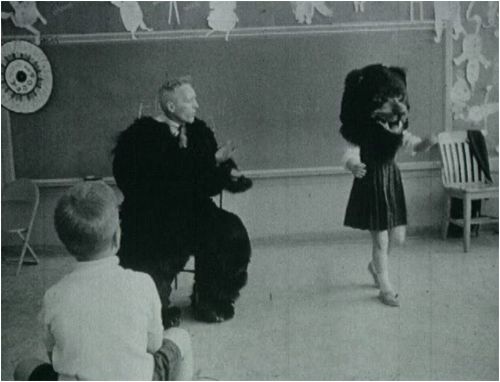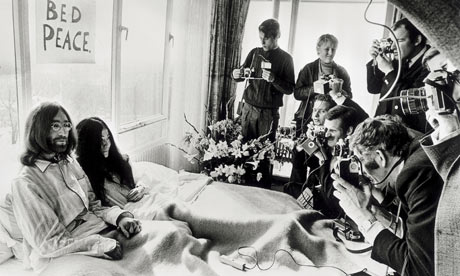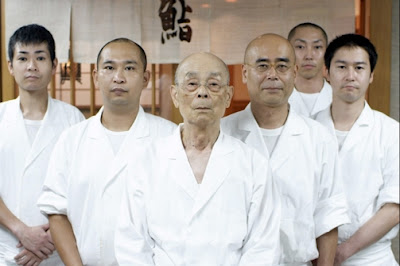The Stage:
Sherwood Forest, Swiss Family Robinson's canopy palace, Ferngully, Neverland's Lost Boy treehouse, and other "camps" are seared into our collective memories of what it was like to be a child driven by aspirations for life in perpetual makeshift. There, in these camps, we'd take pride in and nap beneath our bamboo wind-chimes. Leaving home for an early morning hunt would require rope swinging from our cabin in a well-concealed sycamore branch. We'd scamper through trees to a friend's house on canopy walkways. There'd be nervous moments hiding in camouflaged cellars awaiting ruthless tax collectors. Life would be basic, organic, and exciting.
These orchestrated, need-based earthy existences would substantiate our thousands of hours of longing for endless days in the forts of our youth--an amateur archeologist working behind Johnny's house could easily unearth the foundations of some of these forts. One could gather and chart piecemeal relics of mud-ball fights to tell a grand story of our epic battles.
(We're sad to report that the 'wood's' behind Johnny's house and Ryan's house have both been razed for bland condo complexes. If only those now residing there, watching Survivor and Dancing With The Stars, knew how impressive the land beneath their drywall was. It's a land laden with heroic tales of treachery, life-altering loss, and grass-stained solidarity. If they knew, maybe they'd flip off the television and pick up their high school copy of Huck Finn.)
In these dwellings oozing with 'place', Mom calling us home for supper would never mean returning from paradise, it would necessitate staying. We'd kill animals for sustenance and challenge each other to stick fights atop waterfalls. Pirates would always be roaming. Though they may claim a few of our comrades we'd always come away the victors. To honor our fallen we'd play Amazing Grace on the bagpipes at outdoor funerals. Mass would be read in latin by our drinking-priest. These solemn nights would end in food fights and excessive imbibing around campfires. Deadline-less gatherings for sacraments would be the norm.
In these utopias there are no front doors to leave open. There is no need to wipe your feet and no need to 'clean-up'. There are no corporate headquarters, no copy rooms, no quarterly earnings, no faculty meetings, no electronic mail, no stale office coffee--only boundless wilderness and days spent reminiscing on or preparing for battle.
These are the hopes and dreams of generations of 'lost boys and girls'--those of us with wildness in our hearts and suburbia in our midst. We've noticed this about ourselves and felt compelled to rank the best camps in cinema history. Those that elicit the most intense desire of "wanting-to-belong-to" are those that rise to the top of the list. As there are a multitude of camps in cinema history it becomes necessary to lay ground rules. We must answer some central questions.
What is a camp and what is not a camp? Is a lair a camp? Is a fort a camp? How long must one reside in a location before that place becomes the camp?
The Parameters:
There are a whole slew of elements that determine a camp's place on this list. Set out here are characteristics that emerge in all or most of the camps we've listed. There are other things to consider, no doubt. But these seem to be at the forefront of any listing of the great camps of film. Notably we do not discriminate on a camp's raison d'etre. We are egalitarian in our hashing out of what makes and resembles a 'good' camp. Those camps that house 'bad guys' have a place here.
In no particular order:
a) There must be an enemy, preferably pirates.
b) You must intend to stay though you may have originally not intended to do so.
c) Out-of-doors trumps in-doors.
d) Living off the land trumps smuggling.
e) Being forced to retreat to the fringes because of a ruthless tyrant trumps doing what generations before you have done.
f) In the case of Native tribes--though to them it is simply living how they always live, for our sake, we deem their abodes as camps, as they are not suburban streets--there was no urban planning.
g) Likelihood of lasting
h) Amount of ingenuity
i) Amount of creativity
j) Amount of usefullness
k) Amount of resourcefullness
l) Amount of resolve that went into crafting
m) Overall aesthetics
n) Deftness in the crafting of weaponry (preferably handmade)
o) Quality of barriers to entry
p) Placement and amiable-ness of guards or watchmen (undoubtedly, one should place the 'comedian' on watch so as to create a sense of angst amongst comic relief).
q) Amount and use of tree cover
r) Bonus points awarded for the following: women and men working alongside each other, the presence of dogs and pets, unique or homemade alcohol.
The List:
We've found it best to group in tiers as it's nearly impossible for one to assert that Robin Hood's camp is better than the Lost Boy's camp--they are different yet deserve a spot on a similar level. Also, one should not take being 'C-Listed' as a knock. After all, this is a list of the best in film history. Being notched in a third tier is hardly insulting. To make this list is to be given the highest honor.
A-List:
Swiss Family Robinson - The Canopy Palace
The impetus for this list. The world would be a better place if we were all permitted the opportunity to circle around Mrs. Robinson and sing Christmas carols after a hard days work prepping for an imminent battle with pirates. No film has fostered such strong desires to be adopted as this one. We'll forever consider ourselves surrogate children of the sturdy, tried and true Robinson's.
Robin Hood Prince of Thieves - Sherwood Forest
Arguably the greatest camp the world has ever seen. No person in their right mind has watched this film without wanting to be amongst the most noble and rustic camp builders this side of the Thames River. Our deepest thanks go out to all that made this film possible--you've realized dreams.
Neverland - Lost Boys Treehouse
Childhood was not complete until the film Hook was released. Millions of Lost Boys have since chanted, "Roofio, Roofio, Roofio, Roof--I--oooooo!"
B-List:
Ferngully - Deep in Paradise
Laying the groundwork for an environmental sentiment in this generation of urban greens, Ferngully took us to an oasis and rightfully challenged our oasis with pirates that we can relate to--condo/stripmall land developers. One could argue that those of us compiling this list recycle and compost only to assuage our discomfort first realized in the gelatinous pirate, aptly named, Hexxus.
Red Dawn - Avenging Under Swayze's Wing
In all our youthful exuberance, we secretly long for communists to invade again. RIP Swayze. "Turn it into something else!"
Dances With Wolves - Costner's Getaway
Notably Kevin Costner makes his second appearance on this list (not his last). He's still out on the prairie having relations with hybrid natives as far as we're concerned.
I Am Legend - A Single Man
Will Smith makes an unlikely appearance here. Regardless, his homemaking skills in the face of gnarly amounts of adversity get him a well deserved nod and spot on the B-List.
Castaway - A Lonely Man
What's a film list without Tom Hanks? Angst and patience are two things that undergird any solid camp. Heaping doses of each abound in this underrated camp-based film. We're still proud of him for getting off that island but we recognize how hard it must have been to give up all that he had built. We'd gladly spend a few years marooned on that island.
Defiance - A Real Life Sherwood
"No way! Really?" That's us after seeing Defiance. "It's actually possible in this world that we inhabit to have to truly retreat into the wilderness and fend of bad guys? Maybe we should re-think how much we like this idea of living in camps while people try to kill us. It seems scary and hard."
Alone In The Wilderness - The Best One Man Camp
Mad respect given for Dick Prennoeke and his carpentry skills as well as his resolve. The dude lived in the Alaskan wilderness year-round for a few decades. Watching Dick carve our his niche, literally and figuratively, is shockingly sexy, in some ways.
Ninja Turtles - Ritzin' The Sewers
Though this film has lost some traction as we've grown older it's still worth mentioning how much of an impact these walking and talking turtles had on our life. Their camp might have something to do with April. Not sure how these things are related other than to list the following words together: camp - ninjas - the foot clan - pretty women.
Terminator 2 - Respite From Machines
Others on this list are here for their ability to foment true respite in the viewer. Terminator movies are so full of anxiety that we all need a little place to call home while watching.
Waterworld - Costner Getting Things Done
The deft with which Costner makes his way through camps is both astounding and jealousy inducing. In Sherwood Forest and Waterworld alike, he's forced, at some point, to escape 'pirates'. Because he has that innate ability to know his camp surroundings, his escape is imminent but no less thrilling. The scene when he's swinging from walkways and stairs onto his ship is locked away in our collective memories forever. (Note to selves: when pirates arrive, have a plan set out for escape.)
Thin Red Line - Apocalypto - The New World - The Last Samurai
Now, here's the thing; these films all feature natives living in their natural habitat. In no way were they retreating from anything whatsoever. They simply were living as they knew how to live. However, in our case, their natural habitat has to be placed on a pedestal as any camp constructed post-colonialism is essentially a throw back to how the natives lived for centuries. These native camps are both the matron and patron saint of modern day camp making.
The Last of the Mohicans
This camp is only assumed as we're never permitted to view Long Rifle's base-camp. It is rumored that the camp is too awesome to show in the film. The producers decided that the camp would take away from James Fenimore-Cooper's brilliant story.
C-List:
Troy - Beachfront Property
One must assume that when Hector's father sneaks his way into Achilles' camp that he considered bowing to the Greeks' exceptionalism. They crafted quite a makeshift homestead. Life behind the walls of Troy looks stale and boring compared to life on the beach, sipping wine and licking wounds from battle.
Zion: The Matrix - The Last Stand
The Wachowski brothers took a lot of flack from the Christian right for their portrayal of Zion in the Matrix. Indeed, the orgy, dance party scene was a bit unnerving. Nonetheless, what would you do if you found yourself in one of the cooler underground lair's film has ever seen and machines were trying to dismiss your right to life? There should always be plenty of opportunities to dance in a good camp.
Braveheart - An Amalgamation
As the Scots made their way along the England-Scotland border they found themselves constructing small, manageable camps. Though there is not one camp that stands out one has to admit that sitting around a fire stirring soup with William Wallace--trees and comrades abounding--would be pretty decent.
Bain's Lair - Waiting for the Right Moment
The most recent installment of righteous camping. Bain deserves a spot despite his sordid political views. It was obvious that ample amounts of time and elbow grease went into preparing a home-base before the insurrection.
Avatar - Ferngully Spiced-Up
It's become a cliche to note the similarities between Avatar and Ferngully. As it is, there are similarities. Thus, Avatar gets a spot on the C-List. The only deterrent is that humans can't breath there.
Helm's Deep - Centuries of Homemaking
One gets the sense that middle earth has forever been and will forever be. Helm's Deep gets mad street cred for it's ability to deter the nastiest version of pirates the world has ever known - orks. It's purported that HD, to this day, has loosened its immigration policy and is still taking the undefended.
Patriot - Doin' What A Man's Got To Do
There should always be an opportunity to tell your boys, "You know where to meet me." There's quite a bit of pain in The Patriot and that's probably what keeps their camp in the swamp from being on the B-List. Too much heartache can make a camp a little less appealing. One doesn't want to have to confront personal demons from the past too often. Sometimes it's necessary but just not too much of it.
Final Words:
At the end of the day we recognize that this list might not be comprehensive. However, the aforementioned best camps in film have been the recipients of thousands of moments of dedicated drooling, fist pumping, and tears on our part. One could say that this list is only an effort to pay homage to ourselves. The one saying as much would be slighting those that had the financial and creative means to make these films and realize the dreams of so many, like us, pounding the pavement in the real world. We may not be frontiersmen (or frontierswomen) today, but who knows, tomorrow may bring foreign invasion and those haters will be the ones knocking on the covert doors of our professionally constructed camps, seeking refuge in our expertise at life in perpetual makeshift.




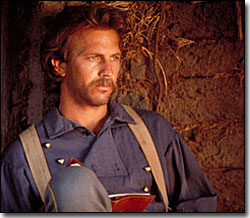
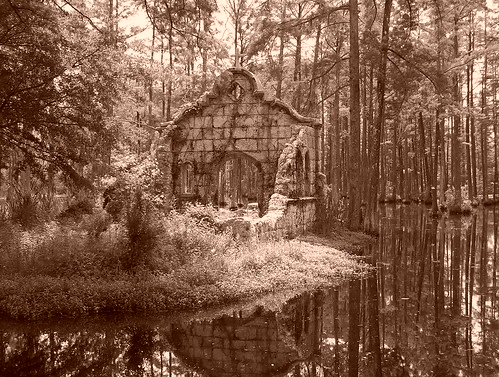


.png)
.png)
.png)
.png)




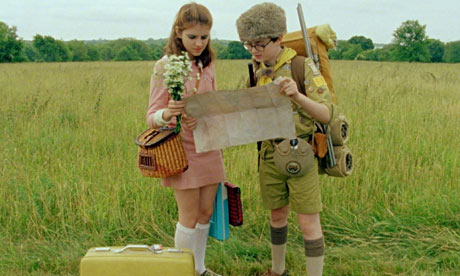
.png)




.png)
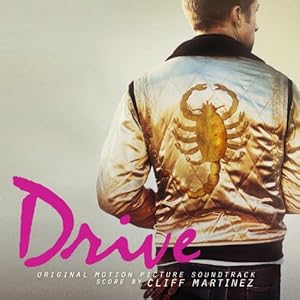

.png)
.png)
.png)
.png)

